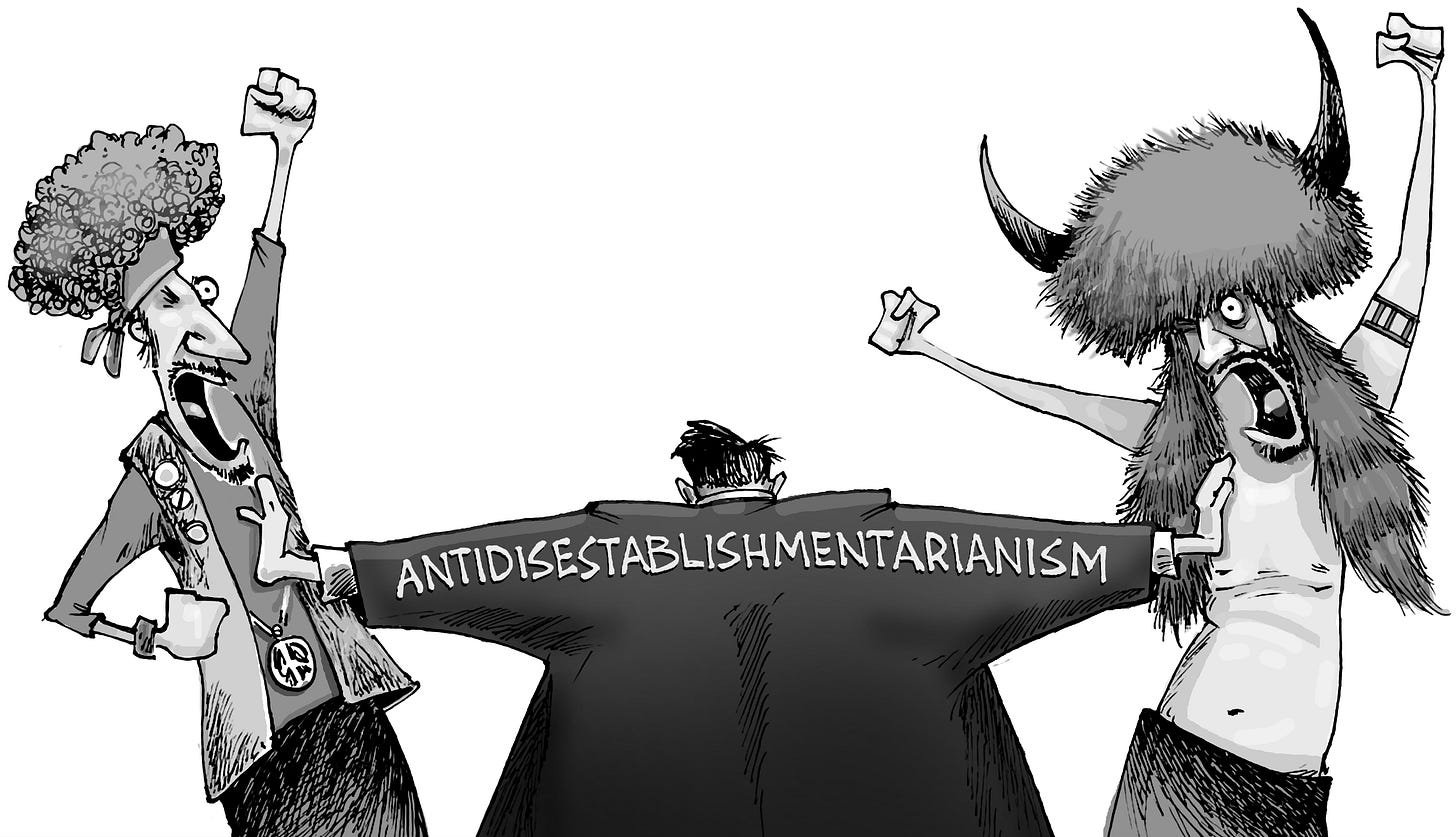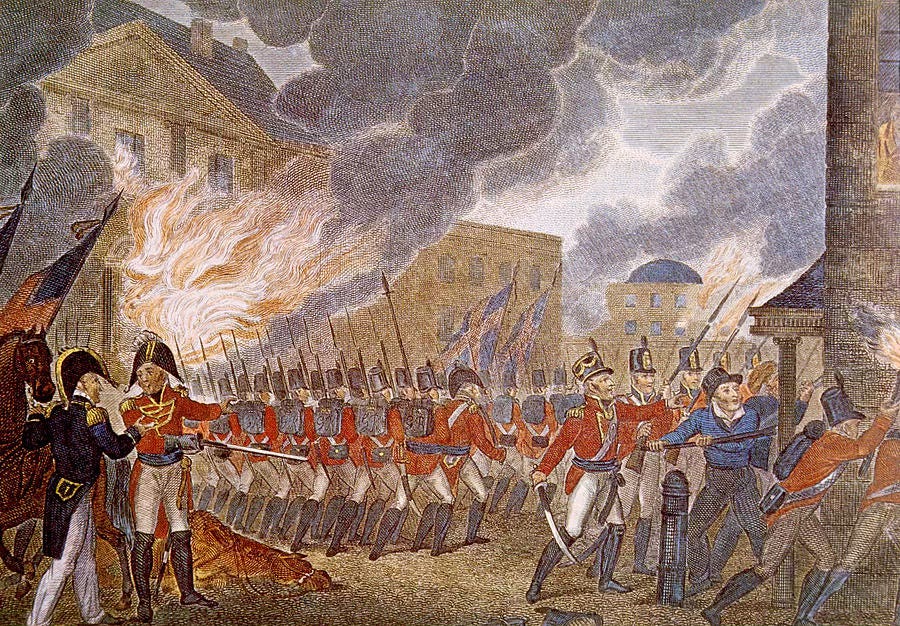
I have a new piece up at Liberal Currents—part of my ongoing attempt to reach out to the center-left. Someone recently described three publications as being variation on a theme, depending on whether the people running them come from the conservative movement (The Bulwark), from a classical liberal or libertarian background (The UnPopulist), or are conventional liberals (Liberal Currents). Since I’ve written for the other two, I thought I should pitch something to the third.
My article is on the need for a new liberal institutionalism. Some of it is about making people on the left aware of how the “counterculture” of the 1960s set the stage for what’s happening now on the right.
For sixty years, our culture has had a strong anti-institutional bent. We can date it to the student protests at Berkeley in 1964, which spread to universities across the country and kicked off the hippie “counterculture” of the 1960s. This rebellion against “the establishment” was all the more influential because it took hold on campus, among students who would later enter and eventually run the very institutions they were clamoring to tear down. This injected an anti-establishment, anti-institutional outlook into the mainstream of the American left—and into the mainstream of American culture.
No, this was not always dominant, and many of the counterculture kids came to accept and even embrace the institutions as they grew into positions of authority. But myriad examples capture the anti-establishment flavor of our era. Consider the anti-Vietnam War protest movement and the 1971 leak of the Pentagon Papers, which was intended to highlight the failures of the Department of Defense. Or remember the 1975 film One Flew Over the Cuckoo’s Nest, which cast mental health institutions as cruel and oppressive. Most of us have grown up in a culture where institutions are routinely portrayed as corrupt and oppressive, where the very term “institutional” is a pejorative, and everybody wants to tear down “the establishment.” We have all been told repeatedly that the whole system is out of order, which reminds us of the histrionic Al Pacino excesses in which this was expressed.
I acknowledge that criticisms of the institutions were often valid—but the new “anti-establishment” culture tried to tear down the institutions as such, where what we really needed was reform. I go on to describe how this reckless disestablishmentarianism is coming to hit us in a way we didn’t expect.
For most of our anti-establishment era, the urge to tear down the institutions was balanced by a conservative philosophy centered around preserving institutions. Conservatives were motivated partly by a desire to maintain the status quo, but also by a sincere conviction about the need for stable and continuous social institutions.
But in the past ten years, in the Trump era, the American right has not only adopted the larger cultural trend but become even more virulently anti-institutional and anti-establishment..
I don’t think I need to work too hard to provide you with examples. My Chaos Reports have already described institutions being gutted and destroyed in mere days. As they prepare themselves to completely defy court orders, our supposed “conservatives” are completing the job of tearing down America’s most important social institution, the Constitution.
I think the anti-institutional right, the strange phenomenon of “conservatives” who want to burn the whole system down, also explains a lot of things that are otherwise inexplicable, like RFK, Jr., and hippie anti-vaxxers suddenly becoming right-wingers. And it also explains this:
This is also why old friends from the libertarian or conservative movements will ask some of us, "What happened to you?" or “Why did you change?” when our actual positions on the issues—trade, immigration, foreign policy, freedom of speech—haven’t changed at all, but theirs have. What they really mean is that they thought we, too, were supposed to be reflexively anti-establishment—so why are we defending norms and institutions?
Finally, this explains the paradox of why I am denounced as an “elite,” but Elon Musk is not.
“Elite” is a curious word if you’re one of the college-educated rank-and-file who still worries about how to pay the mortgage—while billionaires go swanning around claiming to speak for the common man. But that’s the thing about the current era of the diploma divide. “Elite” is no longer a term that refers to wealth, power, or even exceptional ability. Its meaning is now epistemological. To be “elite” refers to nothing more nor less than using the thinking methods of an educated person who cares about epistemological standards—rather than indulging in populist conspiracy theories. And the fact that it is considered bad to be “elite” in this sense sums up a lot of our problem.
I end by calling for a new liberal institutionalism.
[O]ur institutions were built up for a reason. In their early days, all newspapers were biased and partisan, which is why we built up norms for professional media and fact-checking. People used to die from infectious diseases in astonishing numbers, especially children, so we built public health systems, scientific institutions, and vaccination programs. Global wars turned the early 20th Century into an apocalypse, so we built alliances and established international norms. We need someone to defend all of this against the “more modern type of reformer”—now on the right—who wants to tear it down. And we don’t just need to defend old liberal institutions but to build new ones designed to thrive in the digital era.
So I suppose you could call my position antidisestablishmentarianism.



